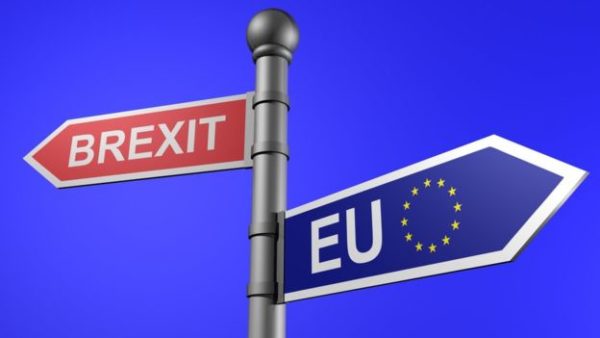The radio show last night was about addiction, and I found it so illuminating. It’s weird because regardless of the topics, the callers I pick from the studio board often have questions related to that topic. That happened last night. We had a few very touching calls. I’ll try to remember to post the recording tomorrow!
Medium, Alison Ailfinn Allan posted the Australian version of the Channeling Erik blog. Click HERE to check it out. It’s wonderful! If you want to book a session with Alison, click HERE.
Here’s the last half of the Brexit post, peeps. I’ll be going to Lake Livingston to camp this afternoon and will return Sunday night! I hope you have as wonderful a weekend as I plan to have! No worries. I’ll still post while I’m gone.
Me: Well now Scotland, you know, they voted to remain in the EU, I mean the U.K. thus the EU, but now the U.K. is out of the EU so they want another referendum vote, but I don’t know whether it’s because they want to declare independence from the U.K. and go back to the EU or whether they just want to be independent and outside of the EU.
Erik: Politics is like a bunch of kids in a sandbox, and they’re all fighting over who gets the shovel and the bucket. All that’s just going to go away.
Me: Well, what’s best for Scotland?
Erik: Mom, I don’t really care.
Robert laughs.
Me: Okay, but what’s best for them?
Erik: What’s best for any country is to speak up for what the hell they want.
Me: I think that’s a good thing, to have a voice. Some people say the older population in the U.K. is xenophobic and is all upset about the immigration of so many Syrian refugees and other Muslims and so on and that the younger population is more tolerant. More tolerant? I hate that word. More accepting. But the younger people didn’t show up to vote because it was raining outside and these young people don’t like to get out in the rain! So what about that?
Erik: Mom, when it comes to generations, older ones have experienced and seen things that have engrained within them a certain way of being. So a lot of people in their 60s and 70s and 80s have lived through wars.
Me: Right. That’s true.
Erik: There was a lot of propaganda going on at the time to make sure those wars continued. Part of it is because of that, and part of it is because of the whole, “Us against them” concept, so even though [traditional] wars haven’t gone on for quite a while in those countries, those people were immersed in it during a period when that was what everyone was thinking. It was kind of an agreed upon thing. And whenever something comes up that reminds them of that, then they go back into that place of fear, and they make sure that doesn’t happen again. Popi did that all the time with y’all. He would bring up things that happened when he was around, and he was concerned that that was going to happen again.
Me: Who?
Erik: Popi.
Me: Oh, my father. Okay. He Who Shall Not Be Named.
Private joke between Robert and me.
Erik: He’s here by the way.
Me: He makes Voldermort look good. We won’t even talk about that.
Robert: He was one of the ones looking over my shoulder.
Erik: As far as young people not getting out to vote, that’s what’s always happened historically. They’re not motivated to because they haven’t experienced a lot of things that would make them want to be motivated.
Me: Exactly. That makes sense. But a lot of people are afraid that there will be millions of Syrian refugees coming in and that it will fundamentally change their culture and that they’ll be a huge voting block that might vote—now this is not my opinion—that might vote in Sharia law. There’s a lot of fear surrounding that.
Erik: Fear makes people do things that are sometimes not in their best interests but others times it is in their best interest. You don’t know how it’s going to be until it plays out.
Me: Is it safe for all these Syrian refugees to come in the country?
Erik: It is.
Me: I mean, ISIS even says that they’re going to use the influx of refugees as a Trojan Horse.
Erik: That can also be a mind fuck for people.
Me: Yeah.
Erik: It’s possible, but here’s the thing that creates a lot of these scenarios: Someone tells people to be afraid of something maybe because he or she is genuinely afraid. Maybe they have information that makes them believe that that’s going to happen. Maybe they got information from a little group, and that little group’s intention is to create more fear. Fear will pull people apart. So then we start applying those fears that we have to a whole group of people—it can be anybody. It used to be the Indians.
I think he means Native Americans.
Erik: It used to be the Italians when there used to be so much separation among the ethnicities in the United States.
Me: Yeah, sure. And the Irish.
Erik: Then we start treating people in a certain way and start looking at them with suspicion. Those people then start reacting in a defensive way, and then we say, “Well, that justifies why we don’t like them.” It creates a lot of separation between us.
Me: Yeah.
Erik: That’s typically how humans have behaved, but a lot of humans are naturally starting to evolve beyond that, and so they’re starting to project the opposite when they’re treated with suspicion or if they’re approached with hostility. They’ll give the opposite. More and more people are doing that so it’s becoming harder and harder for humanity, as a collective, to be manipulated by fear. It’s still there, and it will always be there a certain segment of the population who are in tune with that.
Robert: Everything Erik is saying is about balance. You can’t just have what humans would label as all good or all bad, all love and no fear. All those things are always going to be interspersed in it.
Me: But there are a lot of people—and again, this is not my opinion, okay? Don’t be haters, people! There are people who see that certain cultures like the Muslims, don’t tend to assimilate in their new country. They stay isolated, and I don’t know that that’s a good thing! It would be nice if we could all assimilate and become brothers and sisters together.
Erik: This goes back to what we were talking about in the beginning with Brexit. The U.K. was wanting to assert their individuality. There seems to be nothing wrong with that, right?
Me: But the Muslims can’t exert theirs.
Erik: Right, and because of the things that have happened historically with the Muslims and their faith and culture, and because of a certain population that’s associated with it, we lump them into a certain category. Because they’re not integrated, we start becoming suspicious of them.
Me: But there’s also the other side. Why don’t they want to assimilate? Are they suspicious of us? I don’t think there should be any problem maintaining individualism while assimilating into the culture of the country you’re a part of.
Robert: Yeah, Erik says…
(Pause)
Robert: Who’s talking? Somebody else is talking.
(Pause)
Robert: I can’t make out what they’re saying. There are multiple people talking now.
Me: Must be a bunch of Italians talking over each other!
Robert laughs.
Erik: Every culture, let’s look at the Muslim culture since we’ve been talking about it.
Me: Okay.
Erik: You can think of it as its own culture.
Of course!
Erik: Part of the reason they don’t want to assimilate is because they want to maintain their culture. Part of it is also because society doesn’t always embrace their rituals, so they feel like they have to close themselves off.
Me: Aw, that’s too bad.
Erik: It’s not just the Muslims. It can be any culture, really.
Me: Oh yeah. I see it in the Hispanic culture here, too. I see a lot of cultures not wanting to mix with other cultures. That’s sad because we’re all one. We’re all part of the collective.
Erik: The best way for people to integrate is to appreciate what they do culturally and individually and to not see those things as something to judge them by. Just see everyone as human beings and get back in touch with approaching everyone from the human perspective, realizing that we’re all emotional beings with the same core needs. That’s the thing, when it comes to assimilation, will slowly over time will allow that thing to happen. Then people won’t feel like they have to separate off into groups.
Me: Okay. Anything else you want to share on Brexit? In our next session, we’re going to interview Omar Mateen. So anything else you want to add to this whole Brexit deal?
Erik: I’m fine, Mom. I’m good. Was that good?
Me: Yeah. So you think, all in all, it’s a good thing? I know there’s really no good or bad, but, you know.
Erik: It’s beneficial.
Me: Okay. That’s good.
We close with our usual good-byes and I love yous.


